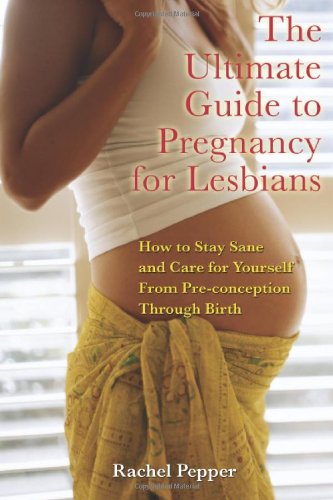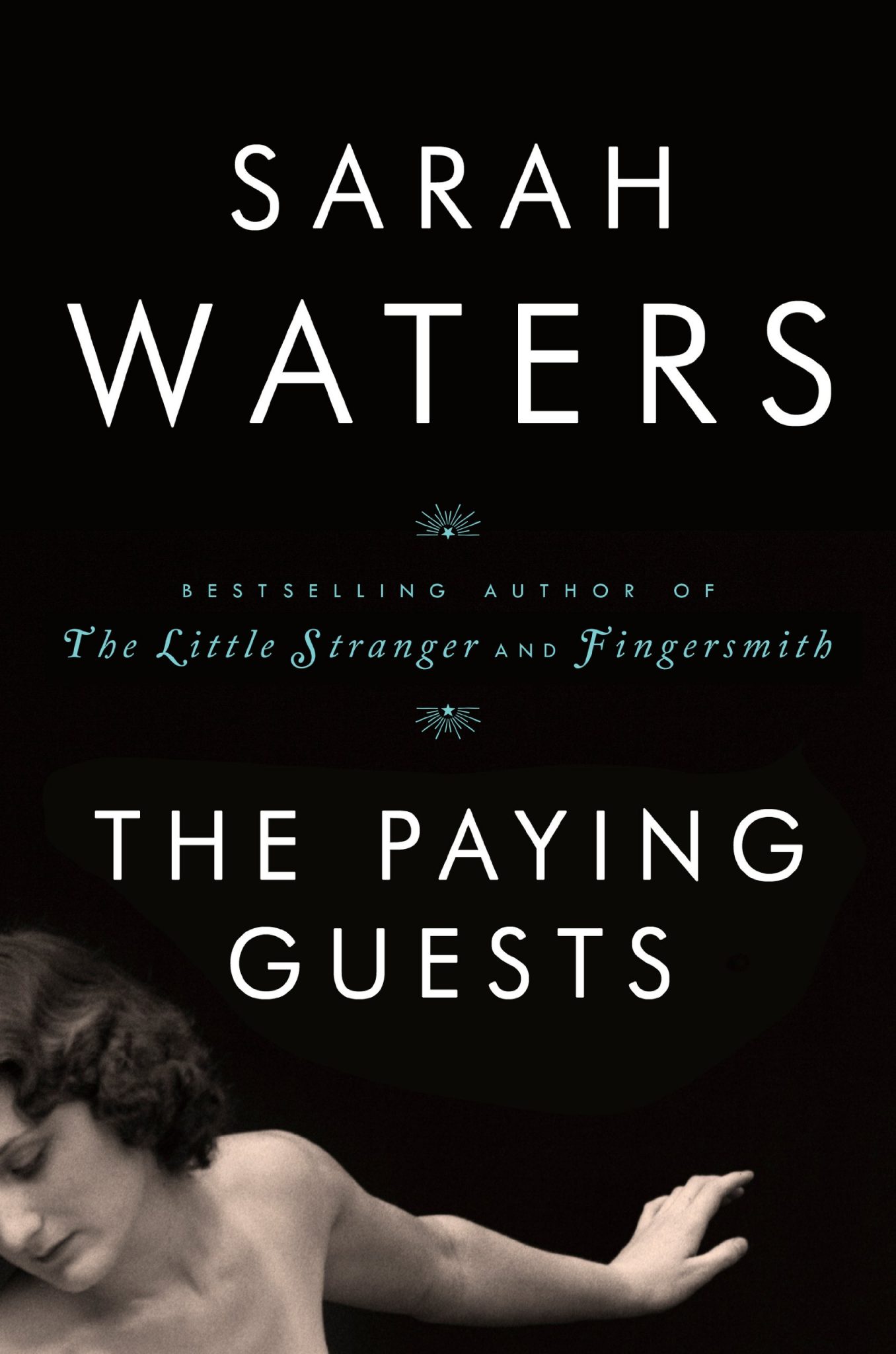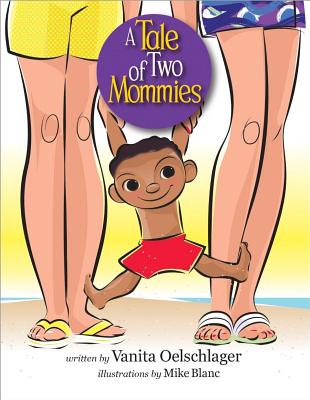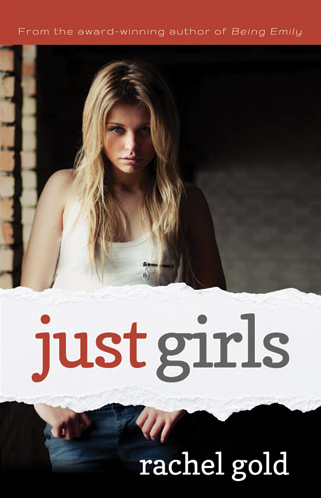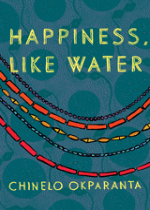After I got married earlier this year, a surprising number of people started asking if my wife and I were going to have kids, and when, and how we were going to go about it. The answer is yes, we’d like to in a couple of years, and I’d probably like to be pregnant. Perhaps prompted by these questions and my lifelong tendency to over-prepare, I picked up a copy of Rachel Pepper’s classic. With caveats, I recommend it to anyone interested in getting pregnant without having sex with a man.
I’m glad I read this book a few years before I was hoping to conceive, because I had no idea how expensive getting lesbian-pregnant can be or how long it takes, even if you don’t have fertility challenges. We’d probably go to a sperm bank, and I learned from this book that sperm is really pricey. I also learned that without fresh sperm it’s more difficult to get pregnant, but using fresh sperm (from, say, your best guy friend, via jar and a plastic tube) can put you in a murky legal position that allows your donor to claim parental rights and fight about custody. There is no perfect solution, and this helpful section of the book lays out the pros and cons of different gay lady conception options so you can find the best choice for you. It also covers in detail how to figure out when you’re ovulating, a necessity if you want to get pregnant with sperm donation.
Unfortunately I think if you read this book while trying to get pregnant, you’ll panic because it sounds like everything takes so long and costs so much. If you are interested in possibly becoming pregnant one day, or hoping to have a pregnant partner in the future, read this book sooner rather than later. It won’t nag you to have babies before you’re ready. It will provide useful information about the process so you’ll know about getting sperm and how to most effectively use it, what pre-pregnancy tests and nutrients you need, and how to determine your peek fertility days.
Where the book falters is in its prescriptions for your pregnancy, birth experience, and your parenting. Pepper’s opinions are presented as facts. Her passion for home births, attachment parenting, and breastfeeding, and against circumcision, make no allowances for people with different values or circumstances, and could needlessly make you feel guilty. I think this unintentionally is another reason to read this book before you’re in the thick of trying to conceive: when you’re trying to get pregnant, or you’re a new parent, people will give you a lot of unsolicited advice. Some of it will be terrible, very little of it will be necessary, and it will almost always be more about the person giving the advice than it is about you. If you can start tuning out the “right way to be pregnant/give birth/be a mother” noise you’re subjected to from Pepper, you’ll be ready for that same noise from strangers, friends, or relatives. But it would probably be tougher to question Pepper’s claims if you’re reading it while you’re waiting on a pregnancy test and you’re feeling anxious and vulnerable.
This book is also almost a decade old, and some of the information is out of date. For example, since I live in California and my wife and I are legally married, we wouldn’t have to go through second parent adoption if one of us has a baby. That wasn’t the case when the second edition of this book was published in 2005, and the legal preparations suggested in this book may be unnecessary depending on where you live. Likewise, Pepper’s information about charting your fertility was written before the age of apps, and now there are several apps that make it easy to keep track of your cycle, possibly much easier than the methods Pepper suggests. It did make me wonder if reproductive technology options have evolved too, and I’d want to do more research before I try to get pregnant.
[trigger warning: transphobic slur]
Another strange thing about this book is Pepper’s references to “tranny pops,” which sounds like a really offensive snack food. She’s trying include transgender fathers, but using a slur that’s often aimed at trans women just made me wince. It’s particularly strange because the book doesn’t mention trans women in lesbian relationships even once. Since I know a few trans women who date women, and a cis woman and a trans woman who have biological kids together, I thought it warranted a couple of pages. Even without bottom surgery, trans women can have fertility issues from hormones, so if they want to have a child with a cis female partner, they might need to do some planning. Or at least they could be acknowledged, since transgender men get a few shout-outs in this lesbian book.
I also thought the book was a tad more focused on single women than it was at lesbian couples. The book is rooted in Pepper’s personal experience, and she’s always been a single parent. The writing is mostly aimed at the person who’ll be pregnant, without as much exploration of the non-pregnant mom-to-be’s experience as my wife and I would have liked. I might eat my words on this, but Pepper spends a bit of ink preparing you, future pregnant women, for your possibly unsupportive, non-pregnant girlfriend who won’t take your pregnancy as seriously as you do. Clearly, people have this experience, but there are also plenty of dedicated non-biological lesbian moms who are there every step of the way. I wanted a little more support and advice for expecting mothers who aren’t pregnant and whose experiences are often minimized or erased. I also would have liked some suggestions about deciding as a couple how you want to parent and sorting out the conflicts that will inevitably arise between a pair of new moms.
If you want nothing to do with pregnancy, definitely skip it. But it is well worth a read if you’re interested in the subject matter, ideally a few years before you’re ready to conceive. Don’t make it your only pregnancy or parenting guidebook, and skip or side-eye Pepper’s advice after the section on conception. For the business of getting pregnant the lesbian way, though, it’s great resource.

